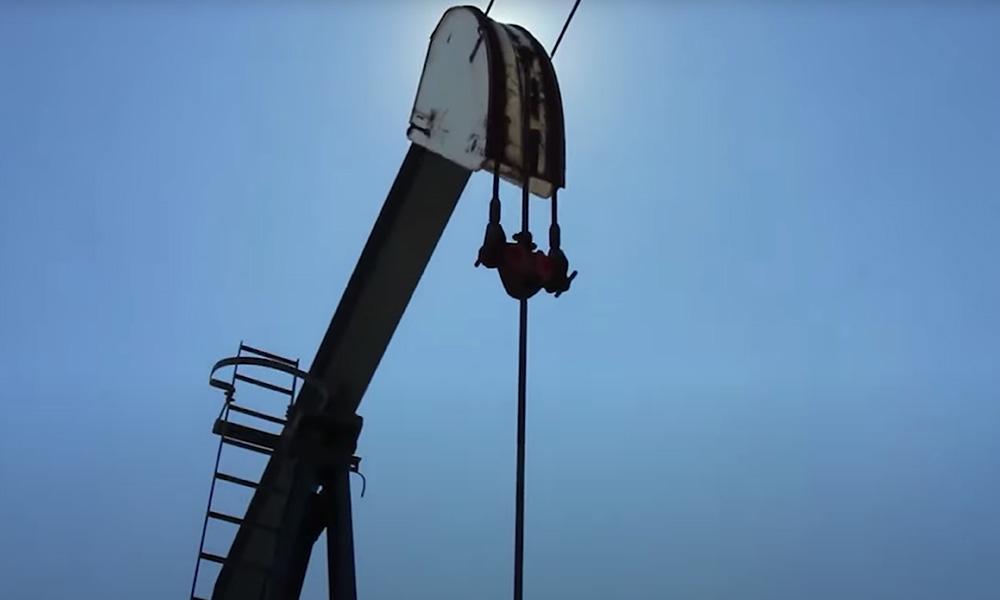The conflict between Iran and Israel continues! Trump's "ambiguous" statement, where will oil prices go?
2025-06-19 14:08:15

Conflict Updates
Iran and Israel face off
In the early hours of Thursday morning, a piercing air defense sirens sounded over the Iranian capital of Tehran. According to Iran's semi-official news agency SNN, Tehran's air defense system successfully intercepted several drones that attacked the suburbs of the capital. Iranian authorities also revealed that they arrested 18 "enemy agents" in the northeastern city of Mashhad, who were accused of manufacturing drones for Israel to use in attacks. At the same time, the Israeli military reported that air defense sirens were also sounded in northern Israel and the Jordan Valley that day, and two drones launched from Iran were successfully intercepted.
Since last Friday, Iran has fired about 400 missiles at Israel, of which about 40 have penetrated Israel's air defenses, killing 24 civilians. According to Iranian statistics, Israel's air strikes have killed at least 224 people, most of them civilians, although this data has not been updated for several days. The military tit-for-tat between the two sides has not only exacerbated regional tensions, but also caused global concerns that the conflict may escalate further.
Netanyahu's tough stance <br/>In a video speech released on Wednesday, Israeli Prime Minister Benjamin Netanyahu said Israel is "progressively moving forward" to eliminate the threat posed by Iran's nuclear facilities and ballistic missile arsenal. He stressed that Israel will not allow Iran to develop nuclear weapons and publicly thanked US President Trump for his support for Israel in the conflict. Netanyahu also revealed that he has been in close contact with Trump, suggesting that there may be some degree of coordination between the two countries in terms of strategy.
Netanyahu's statement shows Israel's tough attitude towards Iran and also sets the stage for whether the United States will directly intervene. His speech is not only a warning to Iran, but also a demonstration to the international community of Israel's uncompromising determination in the face of threats.
Trump’s ambiguity and America’s role
The ambiguous statement of "maybe, maybe not"
US President Trump's attitude in this conflict has attracted much attention. When he was interviewed by reporters outside the White House on Wednesday and asked whether he would join Israel in air strikes on Iranian nuclear facilities, his answer was puzzling: "We may or may not. I mean, nobody knows what I would do." This ambiguous statement, which neither explicitly promised to support Israel nor completely ruled out the possibility of intervention, has led to speculation about the US position.
Trump also revealed in a subsequent speech that Iranian officials had expressed their desire to meet in Washington, but he thought it was "a little late" to hold such talks now. This statement suggests that although the diplomatic path has not been completely closed, Trump's confidence in resolving the issue through negotiations seems to be waning.
The shift in attitude from diplomacy to force
Trump's position is not static. Just a few days ago, he publicly expressed his hope for a quick end to the Iran-Israel conflict through diplomacy. However, on Tuesday, he posted on social media that he knew where Iran's Supreme Leader Ayatollah Ali Khamenei was hiding and warned that the United States' patience was running out. This shift shows that Trump may be shifting from diplomatic mediation to a tougher military posture.
According to the Wall Street Journal, Trump has told senior aides that he has approved a plan to strike Iran, but has not yet issued a final order, conditional on whether Tehran will abandon its nuclear program. Bloomberg, citing people familiar with the matter, said senior US officials are preparing for possible military action against Iran in the coming days. These reports have further heightened concerns that the United States may intervene in the conflict.
Potential nuclear strike plan
A source familiar with internal discussions revealed that Trump and his team are considering joining forces with Israel to strike Iran's nuclear facilities. If this plan is implemented, it will greatly change the strategic landscape in the Middle East. However, Trump's cautious attitude also shows that he may still be weighing the risks and benefits of military action. After all, any direct attack on Iran may trigger a wider regional conflict.
Iran's tough response and international reaction
Khamenei's public rebuke
Iran's Supreme Leader Ayatollah Ali Khamenei made his first public appearance since Friday, strongly refuting Trump's earlier remarks that "Iran should surrender" in a televised speech. He said that any military intervention by the United States would bring "irreparable losses" and stressed that "the Iranian nation will never surrender." Khamenei's speech was not only a direct response to Trump, but also a mobilization of the domestic people, aimed at consolidating Iran's unity in the face of external pressure.
European diplomatic efforts
At the same time, Western countries are also trying to ease tensions through diplomatic means. A German diplomat told Reuters that the foreign ministers of Germany, France and Britain plan to hold nuclear talks with their Iranian counterparts in Geneva on Friday, urging Iran to return to the negotiating table to discuss the future of its nuclear program. The talks are seen as a key step to avoid further escalation of the conflict, but given the complexity of the current situation, the prospects for the talks are unclear.
Putin's cautious approach
When asked about the possibility that Israel could assassinate Iran's top leader with the assistance of the United States, Russian President Vladimir Putin chose to evade the question, saying: "I don't even want to discuss this possibility." Putin's statement reflects Russia's cautious stance in the Iran-Israel conflict and its reluctance to be directly involved in this complex regional game.
Analysis of potential impact on global oil prices
The Middle East is the core region of global energy supply. The escalation of the conflict between Iran and Israel has undoubtedly had a significant impact on oil prices. The following analyzes the potential impact of this conflict on oil prices from several aspects:
Supply disruption risks increase
Iran is an important member of OPEC and its crude oil exports are vital to the global market. If the conflict leads to attacks on Iran's oil facilities or restrictions on its export capacity, the global crude oil supply will face the risk of a significant reduction. In addition, if the conflict affects the Strait of Hormuz, a key choke point for global oil transportation, oil prices may fluctuate sharply.
Geopolitical risk premium rises <br/>Even if the conflict has not yet directly affected oil production, geopolitical uncertainty will push up the risk premium on oil prices. Investors' concerns about the situation in the Middle East may prompt them to push up crude oil futures prices to hedge against potential supply disruptions. Trump's ambiguous statements and rumors of possible US intervention have further exacerbated this uncertainty.
Short-term and long-term impacts
In the short term, the escalation of the Iran-Israel conflict could lead to a rapid rise in oil prices, especially as market expectations of US military intervention grow. In the long term, if the conflict continues or expands, the global energy market may fall into greater turmoil, oil prices may run at high levels, and even pose a threat to the global economic recovery. However, if Europe's diplomatic efforts make progress or Iran compromises, the upward pressure on oil prices may be alleviated to a certain extent.
Summary: The situation is unclear and oil prices are under pressure
The mutual air strikes between Iran and Israel have cast a heavy shadow over the Middle East, while Trump's ambiguous statements and Netanyahu's tough stance have made the situation even more confusing. The tough response of Iran's Supreme Leader Khamenei, Europe's diplomatic mediation and Putin's cautious attitude together constitute a complex picture of this conflict. For global oil prices, the risk of supply disruptions and geopolitical uncertainties brought about by the conflict are pushing up market tensions, and oil prices may face upward pressure in the short term. In the coming days, whether it is a further escalation of military operations or a breakthrough in diplomatic negotiations, it will have a profound impact on the trend of oil prices. The global market is holding its breath, waiting to see the next development of this Middle East game.
At 14:06 Beijing time, U.S. crude oil is currently trading at $73.65 per barrel.
- Risk Warning and Disclaimer
- The market involves risk, and trading may not be suitable for all investors. This article is for reference only and does not constitute personal investment advice, nor does it take into account certain users’ specific investment objectives, financial situation, or other needs. Any investment decisions made based on this information are at your own risk.










